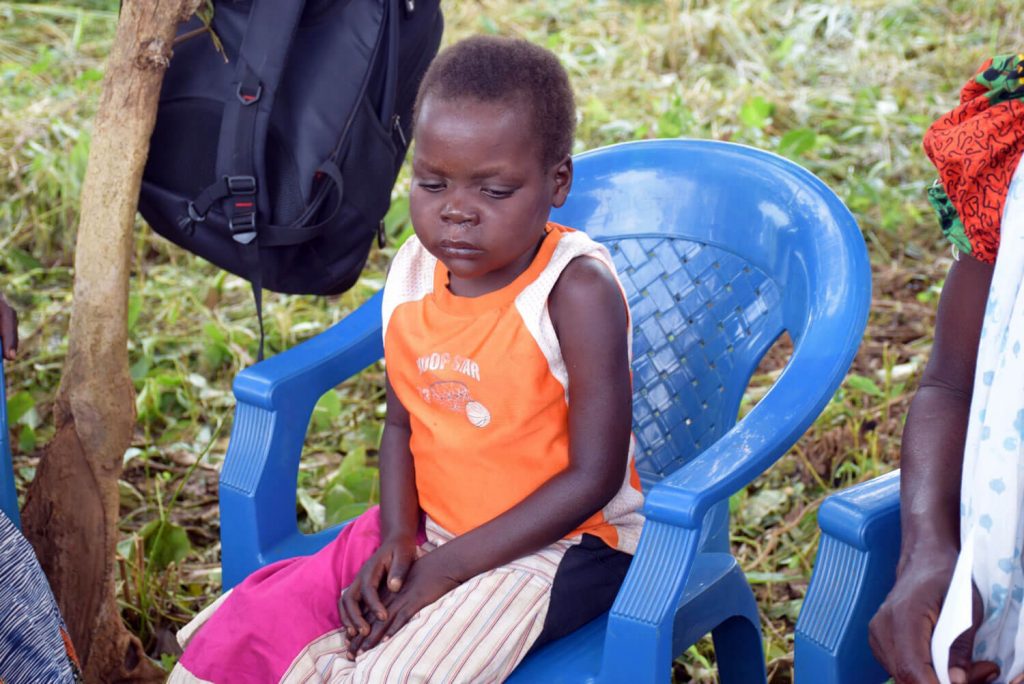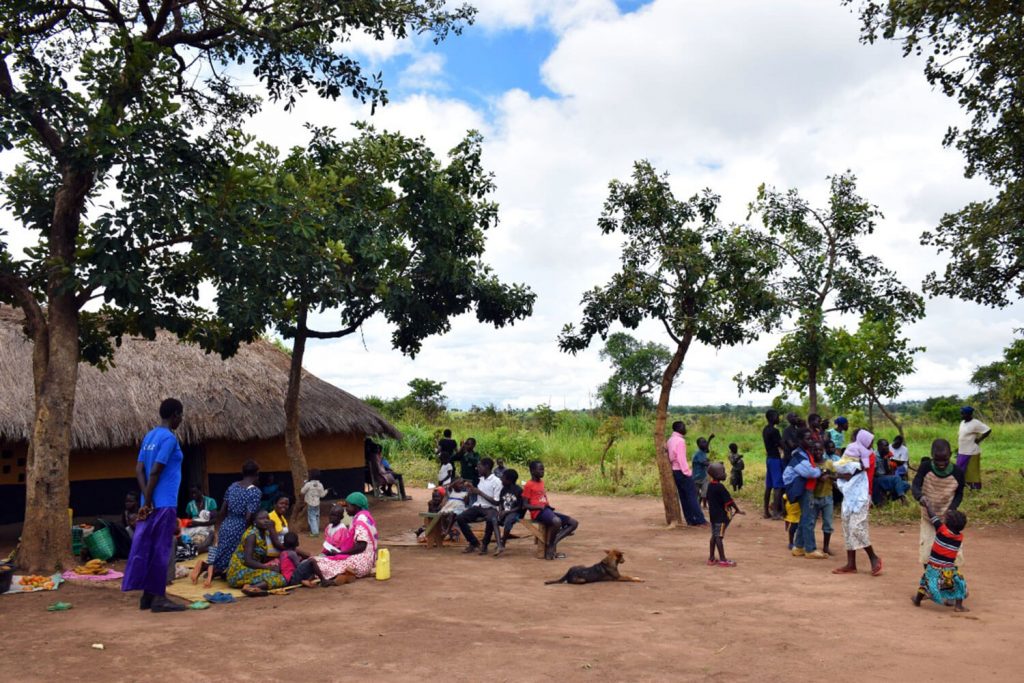Financial Support for Faith’s Health
Faith sits in line awaiting her medical consultation, her debilitated body stiff and face scrunched in great discomfort. At first glance, it is not difficult to notice the distinct aura surrounding her. Contrary to the rest of the children, she appears confined in pain, unbothered by the natural elements around her—the blowing wind indicative of the forthcoming storm—and disengaged from her laughing peers as they play with one another and the dogs.
Born with HIV and now nine years old, Faith has been living with this disease for all of her life. She lives with her grandmother, Mila, who is also her primary caregiver, in the Jinja Village of Amuru District that lies outside of Gulu. Her parents had abandoned her after birth—Faith’s father carried her to Mila’s home to leave her to die; her mother remarried and does not come to visit Faith.
Without the support of her parents, her grandmother, now 54, is all she has. When Faith’s HIV status was confirmed, she was enrolled on antiretroviral treatment (ARV). However, poor living conditions continually obstruct her growth. Whereas HIV treatment has proven to increase life expectancy when coupled with components of a healthy lifestyle—notably, a nutritious diet—Mila struggles to meet these demands as she has no money. In fact, she is also taking care of four other children. Their food mostly comes from farming, but when uncooked, Faith simply does not eat. Thus, lack of nutrition prevents what would be a restoration of her immune system to lead a relatively normal life while living with HIV. Instead, Faith suffers from constant chest and back pain “down to her bones” in addition to experiencing persistent headaches. Inevitably, a compromised immune system leaves her vulnerable to numerous infections, wherein Mila must make the taxing journey to carry her granddaughter to the local health clinic. Today, Faith’s health continues to deteriorate, as indicated by her growth delay—she is around 4’7” at age nine.
When asked about Faith’s future, Mila foresees “darkness.” Haggard from farming, caring for four children—of which one is very sick—and dealing with her own health problems such as high blood pressure, Faith’s grandmother feels uncertain about whether she will be alive to watch her granddaughter grow up. Everyday life is a challenge, and without help she feels close to giving up.
Before leaving the interview, I handed Mila 50,000 Ugandan Shillings—around $13.38—as my donation. Although Faith’s grandmother had received some antibiotics that day from GWED-G’s Integrated Health Session visit, her financial situation still serves as the main barrier in making ends meet, especially when it comes to managing Faith’s health conditions. Shock flits across her face as she cries in Acholi, “I have never seen or held this bill in my life.” Immediately, Mila starts to pray for me and claims that I am a miracle, when my “miraculous” action in addition to other types of support and healthcare should have been granted as a human right.
In an ideal world, Mila and Faith would not face such adversities in meeting the basic, fundamental needs of life. However, the war and government’s neglect have left many communities in harsh living conditions that remain unchanged for generations. Even though Mila told me that Faith would eat well that day—she would buy vegetables and meat at the market—my donation was by no means sustainable. Without financial security and access to basic healthcare, their future hangs by a thread.


